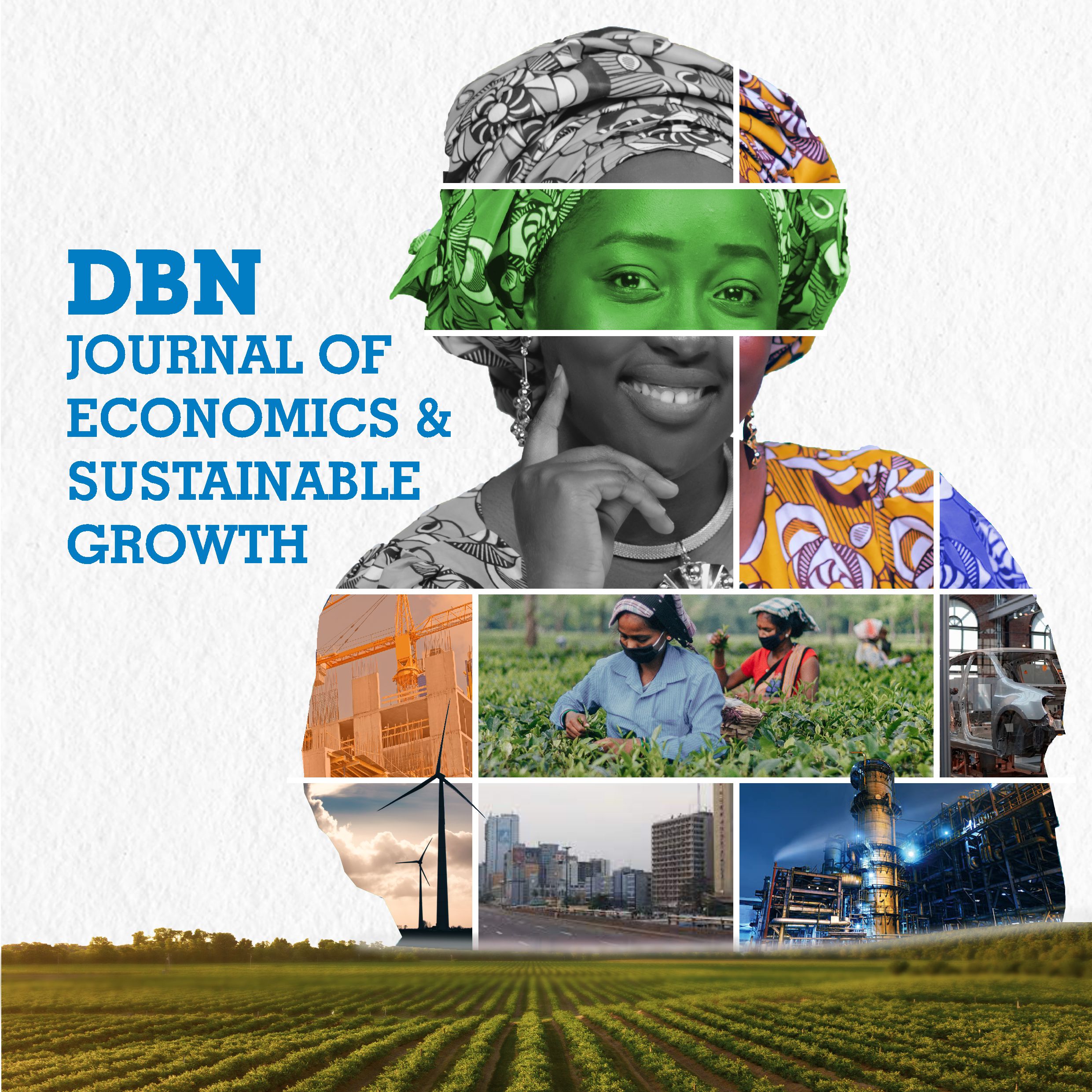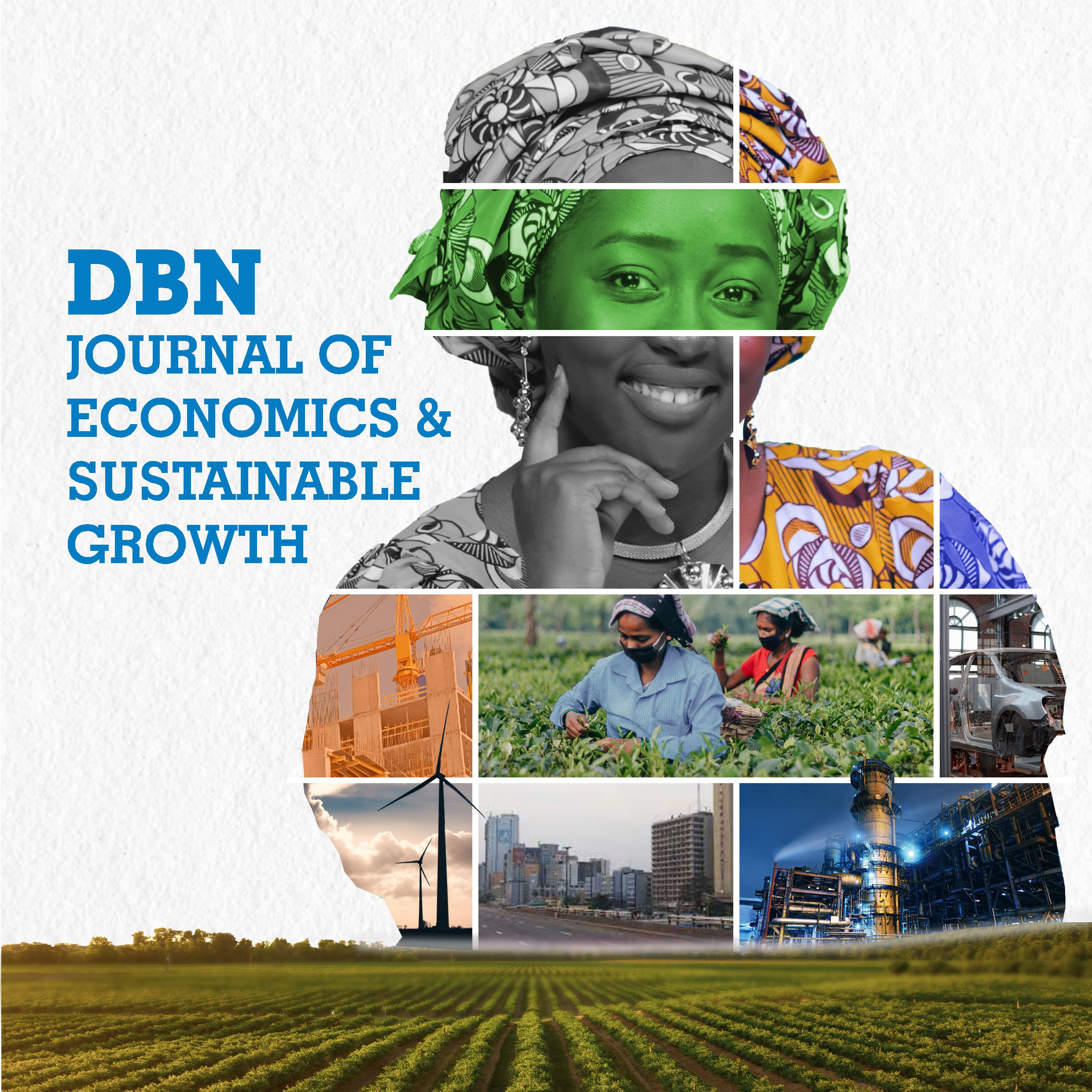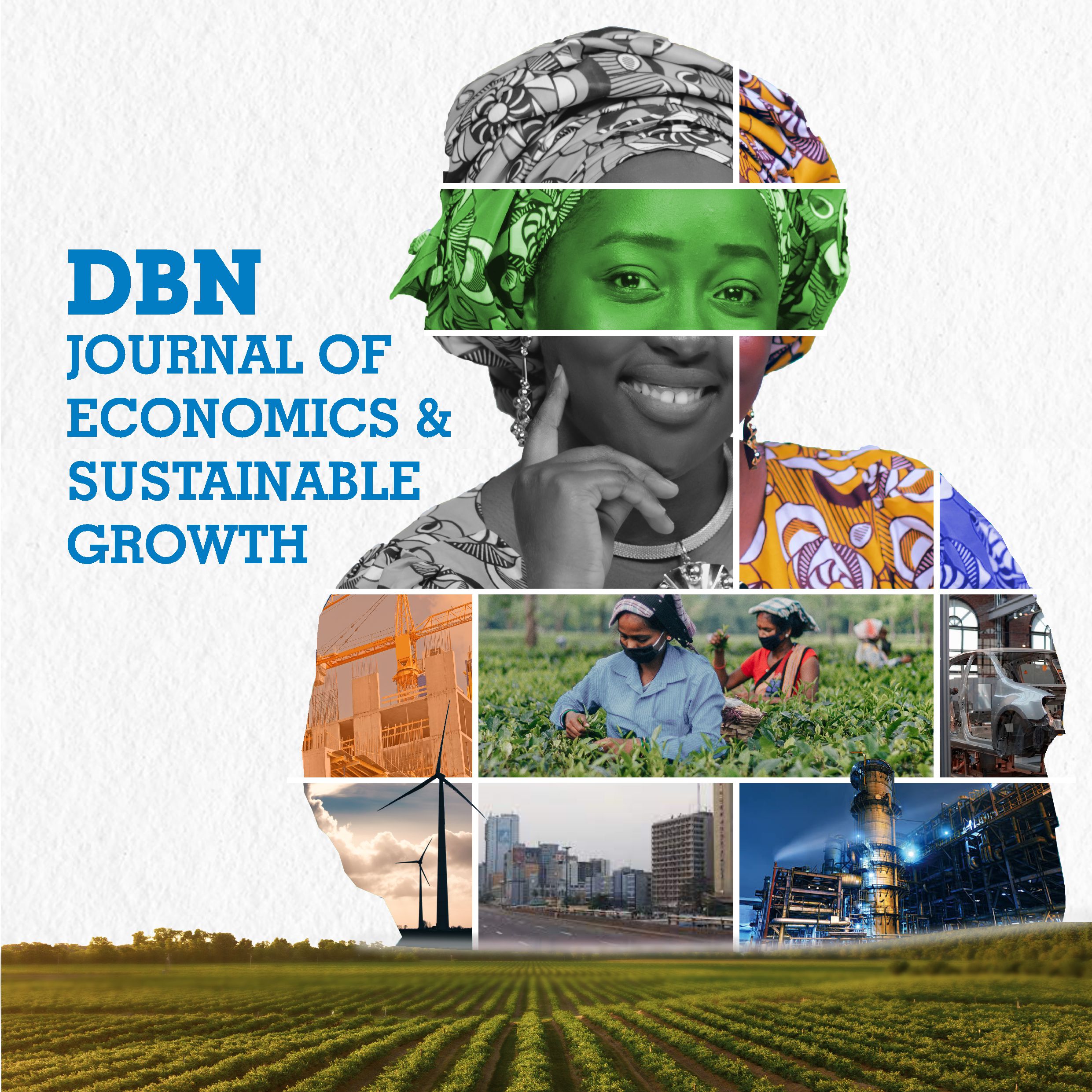
Publication Information
Published by: Admin
Published: 10 months ago
View: 298
Pages: 22
ISBN:
Abstract
Using the techniques of Autoregressive Distributed Lag (ARDL) and Error Correction Model (ECM), this study examines the effects of fiscal and monetary policy on the development and stability of Nigeria's economy from 1985 to 2022. In order to ascertain their impact on both short-term and long-term stability, important economic variables like GDP growth, government expenditure, taxes, interest rates, and money supply were examined. The findings show that government spending, in particular, has a major beneficial influence on long-term economic growth, which supports Nigeria's economy's steady progress. Taxes also have an influence, but they have more subtle impacts that need to be managed carefully to maximise their growth-promoting effects. Therefore, fiscal policy becomes an essential instrument for promoting long-term economic growth. However, the results show that monetary policy, which encompasses variables like interest rates and money supply, is crucial for short-term economic adjustments but has a less noticeable impact on long-term growth. An important way to keep macroeconomic stability, control inflation, and rectify short-term disequilibria is through monetary policy, as demonstrated by the substantial and negative error correction term in the ECM result. This shows how important monetary policy is in providing additional support for maintaining economic stability during times of transient volatility. The report suggests that Nigeria's economic strategy should focus on enhancing fiscal policy, notably in reforming tax systems and streamlining government expenditure to achieve sustainable economic growth. Simultaneously, monetary policy should be employed efficiently to resolve short-term volatility and guarantee macroeconomic equilibrium. Fostering a robust economy that can endure both local and global economic difficulties while assuring long-term development and stability requires a coordinated and integrated approach that makes use of both fiscal and monetary policy.
Etea Ibe
Samuel Terver Kwaghtsulesega
Related Publications

VOLUME 7 ISSUE 1 2025
Blended effect of economic openness and governance on FDI inflows in Nigeria

VOLUME 7 ISSUE 1 2025
Interplay between Sectoral Growth and Financial Development in the Poverty Reduction Process in Nigeria

VOLUME 7 ISSUE 1 2025
Analysing the Monetary and Fiscal Policies Effect on Nigeria's Economic Growth
